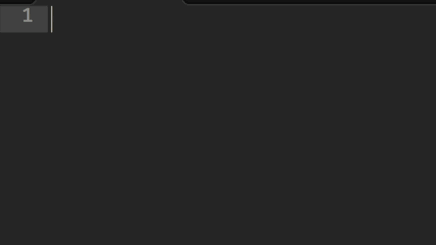hjson / Hjson Go
Licence: mit
Hjson for Go
Stars: ✭ 232
Programming Languages
go
31211 projects - #10 most used programming language
hjson-go
{
# specify rate in requests/second (because comments are helpful!)
rate: 1000
// prefer c-style comments?
/* feeling old fashioned? */
# did you notice that rate doesn't need quotes?
hey: look ma, no quotes for strings either!
# best of all
notice: []
anything: ?
# yes, commas are optional!
}
The Go implementation of Hjson is based on hjson-js. For other platforms see hjson.github.io.
Install
Make sure you have a working Go environment. See the install instructions.
- Get the sources
$ go get -u github.com/hjson/hjson-go
- Build the hjson-cli commandline tool (optional)
$ cd $(go env GOPATH)/src/github.com/hjson/hjson-go/hjson-cli && go install
$ hjson-cli --version
Usage as command line tool
usage: hjson-cli [OPTIONS] [INPUT]
hjson can be used to convert JSON from/to Hjson.
hjson will read the given JSON/Hjson input file or read from stdin.
Options:
-allowMinusZero
Allow -0.
-bracesSameLine
Print braces on the same line.
-c Output as JSON.
-h Show this screen.
-indentBy string
The indent string. (default " ")
-j Output as formatted JSON.
-omitRootBraces
Omit braces at the root.
-quoteAlways
Always quote string values.
Sample:
- run
hjson-cli test.json > test.hjsonto convert to Hjson - run
hjson-cli -j test.hjson > test.jsonto convert to JSON
Usage as a GO library
package main
import (
"github.com/hjson/hjson-go"
"fmt"
)
func main() {
// Now let's look at decoding Hjson data into Go
// values.
sampleText := []byte(`
{
# specify rate in requests/second
rate: 1000
array:
[
foo
bar
]
}`)
// We need to provide a variable where Hjson
// can put the decoded data.
var dat map[string]interface{}
// Decode and a check for errors.
if err := hjson.Unmarshal(sampleText, &dat); err != nil {
panic(err)
}
fmt.Println(dat)
// In order to use the values in the decoded map,
// we'll need to cast them to their appropriate type.
rate := dat["rate"].(float64)
fmt.Println(rate)
array := dat["array"].([]interface{})
str1 := array[0].(string)
fmt.Println(str1)
// To encode to Hjson with default options:
sampleMap := map[string]int{"apple": 5, "lettuce": 7}
hjson, _ := hjson.Marshal(sampleMap)
// this is short for:
// options := hjson.DefaultOptions()
// hjson, _ := hjson.MarshalWithOptions(sampleMap, options)
fmt.Println(string(hjson))
}
If you prefer, you can also unmarshal to Go objects by converting to JSON:
package main
import (
"github.com/hjson/hjson-go"
"encoding/json"
"fmt"
)
type Sample struct {
Rate int
Array []string
}
func main() {
sampleText := []byte(`
{
# specify rate in requests/second
rate: 1000
array:
[
foo
bar
]
}`)
// read Hjson
var dat map[string]interface{}
hjson.Unmarshal(sampleText, &dat)
// convert to JSON
b, _ := json.Marshal(dat)
// unmarshal
var sample Sample
json.Unmarshal(b, &sample)
fmt.Println(sample.Rate)
fmt.Println(sample.Array)
}
API
History
Note that the project description data, including the texts, logos, images, and/or trademarks,
for each open source project belongs to its rightful owner.
If you wish to add or remove any projects, please contact us at [email protected].




